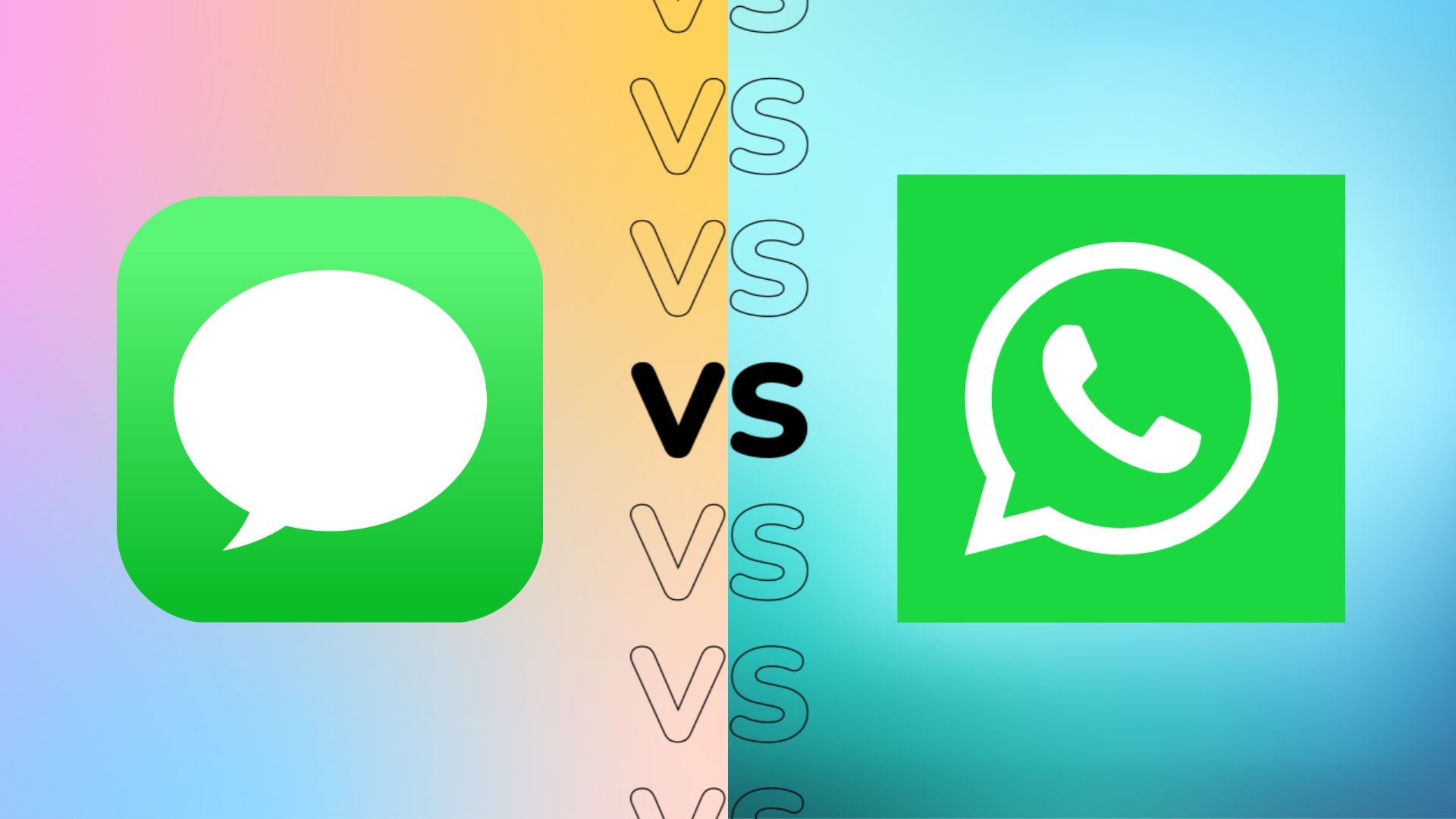
With so many messaging apps to choose from, it can be difficult to know which one is best to use.
We’ve highlighted the key features and differences between Apple’s iMessage and Meta’s WhatsApp below so you can see which messaging platform is better suited for you.
WhatsApp is a third-party platform
All Apple devices, including iPhones, iPads and Macs, come with iMessage pre-installed. If you already use an Apple device then you’ll likely be familiar with the messaging platform, which requires you to either use your Apple ID or phone number to send and receive messages.
WhatsApp, however, does not come installed on any device, regardless of whether it’s Apple or Android. Instead, WhatsApp needs to be downloaded from the respective app store.
Both WhatsApp and iMessage are free to download and free to use.
Both offer end-to-end encryption
On the surface, both WhatsApp and iMessage offer end-to-end encryption as default which means that no one outside the chat will have access to your messages. Even so, there are a few caveats with this.
iMessage only offers end-to-end encryption when you’re messaging another Apple device with iMessage. If you’re speaking to someone with an Android device or someone who has iMessage switched off, then the iMessage app will use SMS or MMS to send the messages, which aren’t encrypted.
All message types on WhatsApp, including messages, photos, calls and voice notes are secured with end-to-end encryption. Make sure that this is enabled in your Settings as conversations may not have this on as default.

WhatsApp requires an internet connection
iMessage works best when you’re communicating with another Apple device, as this means all message types from text to images and voice notes can be sent for free via an internet connection.
Although you can send to and receive messages from Android devices via the iMessage app, they will arrive as either SMS or MMS and not as an iMessage. This is useful as it means messages can come through even if you don’t have an internet connection, however if you’re the one sending messages then be wary of extra network fees.
WhatsApp allows for seamless communication between all device types, regardless of the operating system but requires an internet connection to send and receive messages. If you don’t have Wi-Fi or a mobile connection then messages won’t deliver until a connection is established.


You can customise chats on WhatsApp
Users can change the wallpaper background of all conversations or just for specific chats via the WhatsApp application. These backgrounds can be a stock image from the WhatsApp library, a solid colour or an image from your photo album.
While you technically can customise the background and even the colour of the chat bubbles on your conversations on iMessage, this requires downloading a third-party app from the App Store and is not available on the default app.
WhatsApp allows for larger group chats
WhatsApp allows for up to 1024 group members as standard. Admins can adjust the settings of each chat, add and remove members and even restrict certain people from messaging the group.
iMessage, meanwhile, only allows a maximum of 32 contacts in one group chat.










